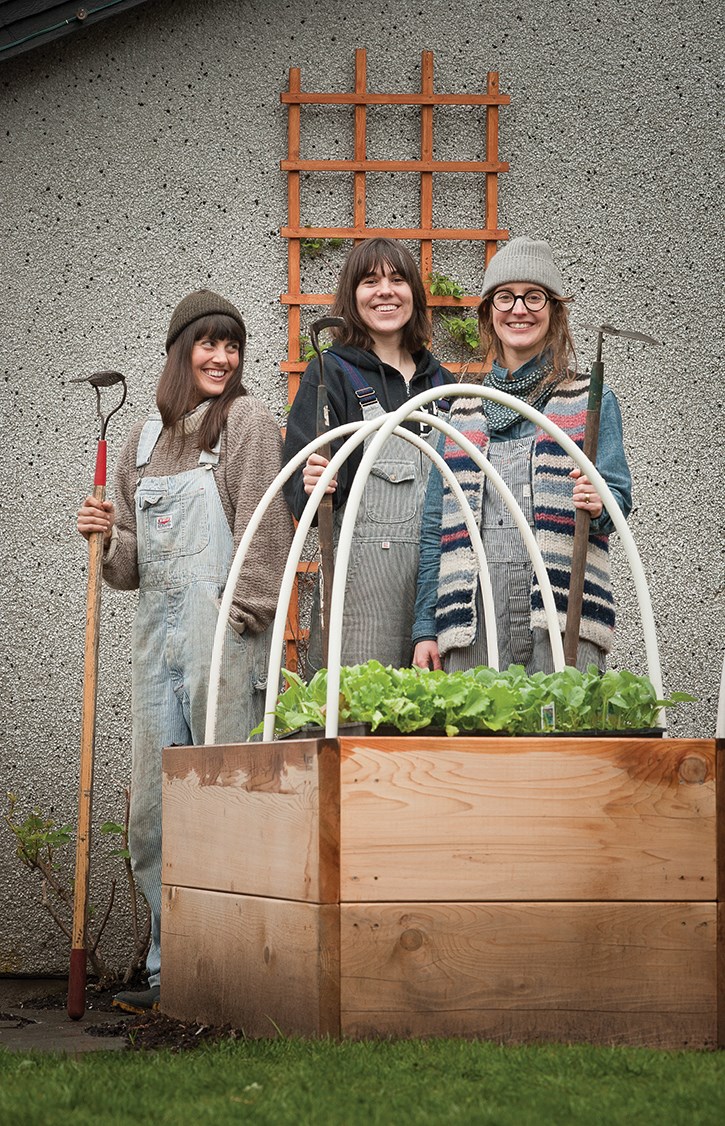During the First and Second World Wars, one of the home-front battle cries was “victory gardens!”
If people could grow more of their own vegetables at a time when many farm hands had signed up to fight, then governments could invest more of their resources in winning the war and bringing the men home.
“Sow the seeds of victory!” a poster exhorted.
And Canadians listened. In 1943 there were almost 210,000 victory gardens in Canada, producing an annual 250kg of vegetables each.
Lisa Giroday, Sandra Lopuch and Samantha Philips were born three generations after the Second World War and not only do they love that “We can do it!” spirit, they are also ethically committed to the idea of being more self-sustaining.
But in the 70 years since war’s end, society became more urbanized and food production became industrialized. Very few parents were passing down gardening know-how to their children, who grew up believing that if you want to eat, you go to a grocery store or a restaurant.
So the three friends decided to start their own gardening business and called it Victory Gardens. Not only do they hire themselves out to create gardens — they just established a rooftop garden at HootSuite’s headquarters and one for Acorn, the vegetarian restaurant — but they also host workshops and seminars on growing your own vegetables.
Winning the $25,000 prize from the Co-operators’ National Co-op Challenge will help them spread the message even further. They’re using the money to produce an educational series of YouTube videos that show people how to create and nurture their own urban vegetable gardens.
“Success is one of the easiest ways to be inspired to grow food,” says Giroday, who still marvels at the miracle of planting a seed in the earth and watching it grow into something she can put on the dinner table. In today’s world where so much is ephemeral, gardening really does allow you to enjoy the fruits of your labour.
When Victory Gardens does an initial assessment for a client, one of the things they take into consideration is how much time and gardening experience their clients can put into it once the three women pack up their shovels and leave.
Lupoch knows that if a garden’s demands become too overwhelming, it’s easy to abandon all those good intentions.
Her mother started out with a garden in the back of their Maple Ridge home but when she went back to work after her three kids got a little older, the garden was ripped up because she no longer had the time to tend to its needs.
Philips’ father was and is an organic gardener — “it was pretty much an obsession,” she says with a laugh — and she learned through osmosis. No matter where she lived, she had a garden.
And that’s the point. There is a way to create gardens in cramped urban spaces, whether it’s planting a rooftop garden at HootSuite’s headquarters or in the back yard of one of HootSuite’s green team members who got so inspired by the project that he wanted a garden of his own. (Victory Gardens built six raised beds in which he’s now growing peas, radishes, spinach and kale with tomatoes to come later in the season.)
Shelley MacArthur is getting Victory Gardens’ help to create a garden in her front yard so that when she wonders, “What’s for dinner?”, the answer is only steps away. She also wants to entice her 22-month-old son to eat more veggies — right now she has to hide them in his food — by having him help with the garden. Little farmers grow into big vegetable eaters.
“It’s all about fostering a connection between people and the food they consume,” says Lupoch.
For updates on workshops and events, go to VictoryGardensVancouver.ca.



